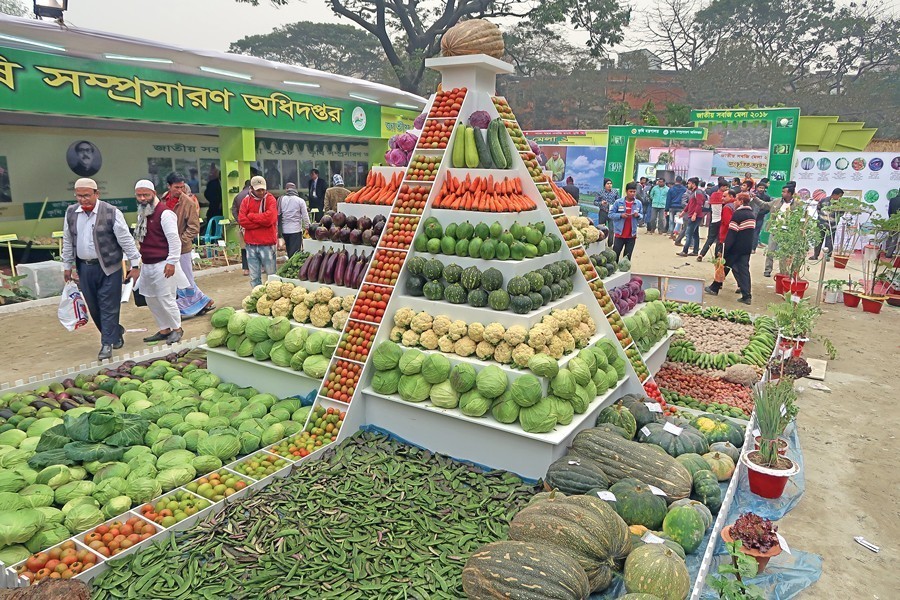Any fair with the tag 'national' has its insurmountable importance because it is an occasion to celebrate something touching the people's life irrespective of classes and segments. On that count, the National Vegetable Fair stands out because of its dietary value, availability and price. After the staple rice, vegetables make the largest composition of the majority of people's diet in this part of the world. Highlighting its contribution to human health and economy and raising awareness of people about the role of vegetables in a fast changing country ought to be the prime objective of arranging such a fair. But the information disseminated on the occasion is sure to leave one perplexed. On the inaugural day, the vice-chancellor (VC) of the Patuakhali Science and Technology University reportedly claimed that the country produces 3.73 tonnes of vegetables. But on the penultimate day it is reported that the country's total annual production of vegetables is 16.04 million tonnes.
There is no mention if the VC's estimate is a yearly one. But most likely it is, for on that basis the calculation of per capita consumption of vegetables stands at 62 gram. This amount, the VC reckons, falls short of the Food and Agriculture Organisation (FAO)-recommended 220 gm by 158 gm a day. On that basis also he suggested raising the production of vegetables to at least 13.7 million tonnes. But if the agriculture ministry's figure of 16.04 million tonnes stands, the paper the VC presented at the seminar on the inaugural day loses all its meanings and relevance. This is not only confusing, but also highly embarrassing for the organisers and the participants. Celebration of vegetables is hardly helped by such a lack of ground works and incongruity. The organisers and participants could have avoided any such oversights.
Most likely the agriculture ministry can stand its ground. There is no denying that the country has not only gone whole hog to cultivate paddy but also made giant strides in raising the output of vegetables through diversification of such produces. The ministry states that 16.2 million farmers are now growing 156 types of vegetables -- some of which are exotic. Broccoli, capsicum, purple cabbage and special types of cucumber and tomato have already become popular in the country. Farmers are not lagging behind in cultivation of an array of exotic fruits such as strawberries, dragon fruits and rambutan.
The inaugural paper certainly failed to capture the spirit of the occasion that was supposed to celebrate the enterprising skills of the country's farmers. If the country produced 3.73 million tonnes of vegetables, it had no chance of emerging as the third highest vegetable grower and exporting the same. It is a feat that deserves to be celebrated and thanks are due to the Department of Agricultural Extension (DAE) and the country's farmers. They together have scripted a success story for the country's food production. The consumers, on the other hand, now need to be sensitised enough to owe their gratitude to the DAE and farmers. They must as well be aware of the virtue of eating enough vegetables.


